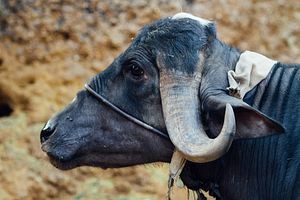From isolated incidents to sprees, instances of mob lynchings have been on the rise in India. Often in an attempt to mete out vigilante justice in cases of mere suspicion, this horrifying evolving trend has disproportionately affected a particularly specific category of victims: those who consume beef. When the Bharatiya Janata Party (BJP) came to power three years ago, it stood on a strong platform of cow protection on the basis of the sanctity and the importance of the animal within Hindu practices and cultures. Cow protection did not just include care for cows, but also gradual moves toward banning their slaughter.
With the evolution of this rhetoric, disconnected groups of so-called “gau rakshaks” or cow protectors across the country have been engaging in acts of public lynching of those suspected or proven to be consuming or hoarding beef. This ultimately resulted in a mounting number of victims who are almost exclusively either Muslim or Dalit by virtue of pre-existing beef consumption practices among both groups.
After 16-year-old Junaid Khan was killed in Haryana after a fight on a train involving knives, anti-Muslim slurs, and a complicit mob, the country has been in a stir. Junaid and his cousins were returning home after Eid shopping and drawn into the brawl. The other men sustained injuries; Junaid succumbed to them. After this incident, as if to indicate that a line had been crossed, across the country groups of angry protesters have held demonstrations decrying mob lynchings. A specific characteristic of the protests is the invocation of the hashtag #NotInMyName in reference to the justifications that lynch mobs provided.
On June 28, 2017, 12 cities in India held protests cutting across similar themes in their critique of the lynch trend and the political regime’s facilitation of violence. Prime Minister Narendra Modi finally broke his silence regarding the recurrence of violence, saying that murder in the name of the cow and the seizure of law into one’s own hands was unacceptable. However the length of his silence and the justification of some of the attacks by other BJP leaders has culminated in a perception of this denouncement as inadequate. Soon after the statement, another instance of lynching occurred in Jharkhand. Since then protests have been held in three other cities, most recently in Chennai on July 1.
The #NotInMyName protests have had a strong enunciation on social media and brought together groups of activists, students, and ordinary citizens. Common themes across the protests include the call to break the silence, stir up the public conscience, and criticize both the act of lynching as well as the anti-Muslim character it takes. Protesters often referred to the instances as cow terrorism and termed India as “lynchistan,” carrying placards with names of all the victims and incorporating the imagery of bloodied slippers and cows. Some protests invoked silence and others made use of black arm bands. Celebrities across professions have also expressed solidarity with the protesters and made appearances at the demonstrations. Solidarity protests have been held in both London and Karachi.
President Pranab Mukherjee, in a recent address, urged Indians to pause, reflect, and to be vigilant to the basic tenets of the country, referring to the rise in violence. While the act of lynching itself is not a new feature associated with just the Modi regime, the reasons for these lynchings and the long spates of silence and absence of condemnation from the ruling elite places responsibility squarely upon its shoulders.
A significant strand of public opinion meanwhile contends that lynch mobs could not persist without government complicity, arguing that the gau rakshaks face no real deterrence. Drawing attention to the complementarity between state brutality and lynch squads, political pundits have argued that the silence and tokenism of the Modi regime is strategic and consistent with its majoritarian presence.
However, the protests have evoked skepticism as well. Some have argued that the protests have prioritized the murder of Muslims and sidelined Dalit deaths based on similar reasons, indicating that refocusing on the latter would have garnered a quicker reaction from the government. While this strand does not clearly depict exactly at which point the plight of Dalits was sidelined, at their core they agree with a need to break the silence and also concede that the government plays majoritarian politics.
Others, however, have more strongly pursued the caste-based critique of the protests. Arguing that the #NotInMyName campaign is similar to the #NotAllMen trend that arose in the West following violence against women, this strand believes that the protests are a means by which upper caste Hindus shirk privilege and make a false attempt to differentiate between Hinduism (the religion) and Hindutva (a right-wing political project to prune and institutionalize the religion).
Protest groups have however responded to this accusation, pointing to the multiplicity of identity groups that participate in the campaign and redefining the “my” in intersectional terms. Protesters argue that this critique is based on further identity politics and that the collective cuts across caste, class, religious, and gender boundaries to call out state-facilitated violence, without denying themselves the ability to look inward and examine privilege.
The numbers that attended the protests varied across cities and the mobilizational strategies did not always yield significant crowds. However, the protests are nevertheless of immense importance as they are an important beginning: a beginning for mobilization, a beginning for the call for collective conscience to overcome sectarian policies, and a beginning to the recognition of tacit compliance with violence as unacceptable.
A beginning, therefore, toward breaking the silence on willful murder and anti-Muslim rage in India.

































